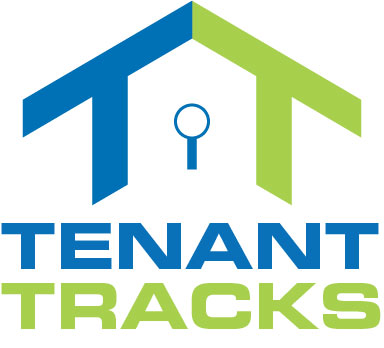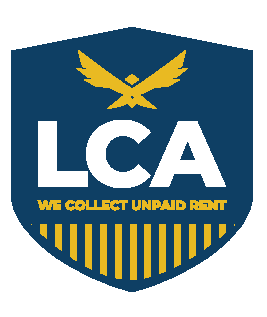Investing in rental properties can be a lucrative venture, offering a pathway to financial freedom and long-term wealth. However, it requires careful planning, diligent management, and a thorough understanding of the market. This guide will provide you with the essential knowledge to navigate the world of rental property investment.
- Evaluating Your Investment Goals
Before diving into the real estate market, clearly define your investment goals:
- Cash Flow: Prioritize properties that generate consistent rental income exceeding expenses.
- Appreciation: Focus on properties in areas with strong appreciation potential, allowing for significant long-term capital gains.
- Tax Benefits: Leverage tax advantages like depreciation and deductions to minimize your tax liability.
- Portfolio Diversification: Incorporate rental properties into a diversified investment portfolio to reduce overall risk.
- Passive Income: Determine the level of involvement you desire. Consider hiring a property manager for hands-off ownership.
- Conducting Market Research
Thorough market research is crucial for successful rental property investment:
- Analyze Local Markets: Identify high-demand areas with strong rental markets, low vacancy rates, and potential for property appreciation.
- Assess Competition: Analyze the availability and pricing of comparable rental properties in the target market.
- Understand Local Regulations: Familiarize yourself with local zoning laws, building codes, and landlord-tenant laws.
- Evaluate Economic Factors: Consider factors like job growth, population trends, and economic stability in the target area.
- Finding the Right Property
- Property Type: Consider various property types, such as single-family homes, multi-family units, duplexes, or even commercial properties. Each type has unique advantages and disadvantages.
- Location, Location, Location: Choose properties in desirable neighborhoods with good schools, convenient amenities, and easy access to transportation.
- Property Condition: Evaluate the property’s condition thoroughly. Consider necessary repairs, renovations, and potential maintenance costs.
- Financial Analysis: Conduct a thorough financial analysis, including:
- Rental Income: Estimate potential rental income based on market comparisons.
- Expenses: Calculate estimated expenses, including property taxes, insurance, maintenance, vacancies, and property management fees.
- Cash Flow: Determine the projected net operating income (NOI) and cash flow.
- Return on Investment (ROI): Calculate key metrics like ROI, cash-on-cash return, and cap rate to assess profitability.
- Financing Your Investment
- Explore Financing Options:
- Consider traditional mortgages, private lenders, and hard money loans.
- Compare interest rates, loan terms, and down payment requirements.
- Improve Your Credit Score: A higher credit score qualifies you for better loan terms and lower interest rates.
- Secure a Down Payment: Save diligently to accumulate a sufficient down payment.
- Consider a Rental Property Mortgage: Some lenders offer specialized mortgages with different qualifying criteria than traditional home loans.
- Property Management
- Hands-on Management: If you choose to manage the property yourself, be prepared for the time commitment and responsibilities involved.
- Professional Property Management: Consider hiring a professional property manager to handle day-to-day tasks like tenant screening, rent collection, maintenance, and repairs.
- Build a Strong Tenant Relationship:
- Screen tenants carefully to minimize risk.
- Respond promptly to maintenance requests and tenant concerns.
- Maintain clear and consistent communication with tenants.
- Ongoing Maintenance and Upgrades
- Regular Maintenance: Conduct regular property inspections and address maintenance issues promptly to prevent costly repairs and tenant dissatisfaction.
- Strategic Upgrades:
- Consider making strategic upgrades to increase rental income and property value.
- Focus on improvements that enhance tenant appeal and property functionality.
- Tax Considerations
- Depreciation: Utilize depreciation deductions to offset income and reduce your tax liability.
- Tax-Loss Harvesting: If your rental property generates a loss, you may be able to offset other income.
- Consult with a Tax Professional: Seek professional tax advice to ensure you are maximizing tax benefits and complying with all applicable tax laws.
- Legal and Insurance Considerations
- Landlord-Tenant Laws: Familiarize yourself with all applicable landlord-tenant laws in your area.
- Insurance: Obtain adequate insurance coverage, including landlord insurance, property insurance, and liability insurance.
- Long-Term Strategy
- Diversification: Consider expanding your rental property portfolio over time.
- Reinvesting Profits: Reinvest profits back into your properties or other real estate investments.
- Long-Term Appreciation: Focus on properties with long-term appreciation potential to build significant wealth over time.
- Continuous Learning and Adaptation
- Stay Informed: Keep abreast of market trends, industry best practices, and changes in relevant laws and regulations.
- Network with Other Investors: Connect with other landlords and real estate investors to learn from their experiences and gain valuable insights.
- Adapt to Changing Market Conditions:
- Be prepared to adjust your investment strategy based on changing market dynamics and economic conditions.
Investing in rental properties can be a rewarding and profitable venture. By conducting thorough research, carefully evaluating potential properties, and managing your investments effectively, you can build a successful real estate portfolio and achieve your financial goals.
New real estate investors in Connecticut should strongly consider joining the Connecticut Property Owners Alliance (CTPOA). As a powerful advocacy group, CTPOA provides invaluable resources and support to landlords navigating the complexities of the Connecticut real estate market. Membership offers access to critical information on legislative changes, legal updates, and best practices in property management. By joining CTPOA, new investors gain a valuable network of experienced landlords, industry professionals, and legal experts, fostering a supportive community and valuable mentorship opportunities. Furthermore, CTPOA actively advocates for landlord rights, ensuring that the interests of property owners are represented at the legislative level. Joining CTPOA empowers new investors with the knowledge, support, and advocacy they need to succeed in the Connecticut real estate market.
Disclaimer: This article is for informational purposes only and does not constitute financial or legal advice.








